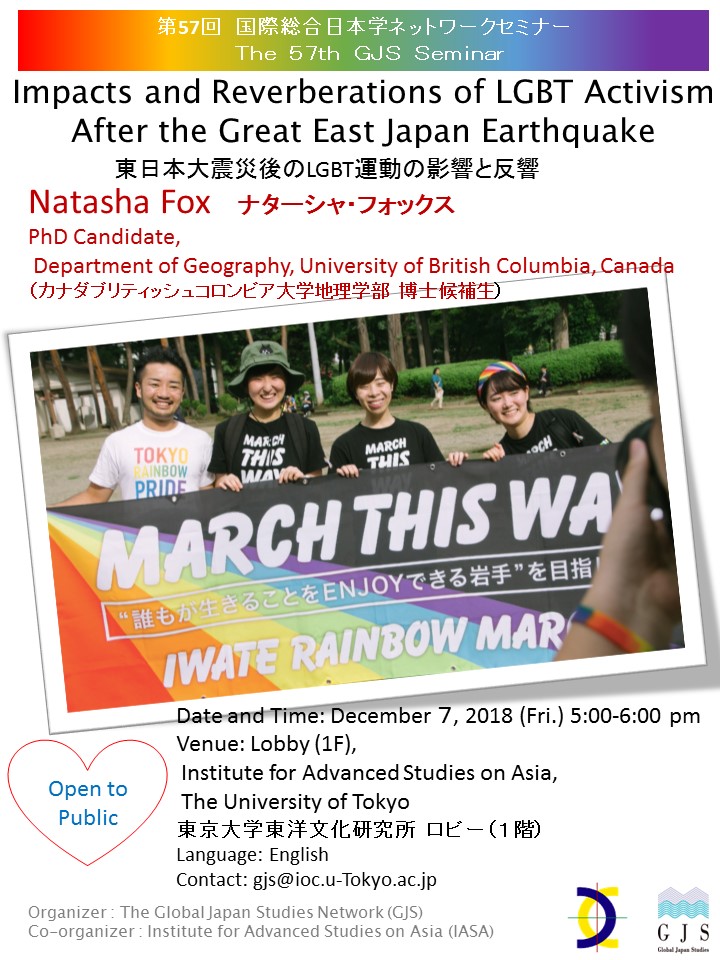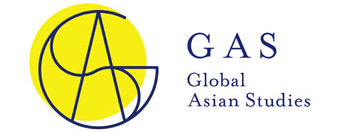第57回GJSセミナー東日本大震災後のLGBT運動の影響と反響
| 日時: | 2018年12月7日(金)17:00~18:00 |
|---|---|
| 会場: | 東京大学東洋文化研究所 1階ロビー |
| 発表者: | ナターシャ・フォックス (ブリティッシュコロンビア大学地理学部 博士候補生) |
| 使用言語: | 英語 |

発表概要: Individual accounts of disaster in Japan and elsewhere show both the need to account for LGBT experiences of disasters, and how flaws in disaster risk reduction (DRR) planning can create added burdens for LGBT people in the disaster environment. When the 2011 earthquake and tsunami forced people of Tohoku to flee to shelters and emergency refuge stations, LGBT residents in the region, many of whom had not been living openly as such, had to navigate a highly heteronormative and cisnormative emergency environment. Inequalities built into the disaster preparation process meant that LGBT people could be refused access to a hospitalized spouse, pressured to self-identify as either “male” or “female” in order to access emergency shelters, or face overt harassment based on sexuality and/or gender identity. In the longer-term recovery period, LGBT Japanese people have been excluded from provisional housing, which is designated only for members of a “family unit”, excluding same-sex couples unrecognized by Japanese law. Responding to these and other injustices, Tohoku-based LGBT activism demonstrates the creative strategies through which rural LGBT folk have met one another’s post-disaster needs, while destabilizing orthodoxies of sexuality and rural vs. urban spaces in Japan. A recent demonstration in Iwate Prefecture illustrates both the challenges of LGBT grassroots political organizing in local communities, as well as the significance of the post-disaster context in galvanizing new forms of political subjectivity. My talk will describe some of the ways in which local LGBT people encountered the disasters, and discuss some ongoing reverberations of these encounters with a focus on NGOs in Tohoku.
主催:東京大学国際総合日本学ネットワーク(GJS)共催:東京大学東洋文化研究所(IASA)
問い合わせ:gjs[at]ioc.u-tokyo.ac.jp



